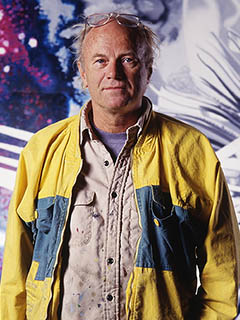A Quote by Neil deGrasse Tyson
The universe has really never made things in ones. The Earth is special and everything else is different? No, we’ve got seven other planets. The sun? No, the sun is one of those dots in the night sky. The Milky Way? No, it’s one of a hundred billion galaxies. And the universe - maybe it’s countless other universes.
Related Quotes
Philosophically, the universe has really never made things in ones. The Earth is special and everything else is different? No, we've got seven other planets. The sun? No, the sun is one of those dots in the night sky. The Milky Way? No, it's one of a hundred billion galaxies. And the universe - maybe it's countless other universes.
We live on a hunk of rock and metal that circles a humdrum star that is one of 400 billion other stars that make up the Milky Way Galaxy which is one of billions of other galaxies which make up a universe which may be one of a very large number, perhaps an infinite number, of other universes. That is a perspective on human life and our culture that is well worth pondering.
You know; when I look at the night sky and I see this enormous splendor of stars and galaxies, I sometimes ask the question, well how many worlds are we talking about? Well do the math, there are about 100 billion galaxies that are in the visible universe and each galaxy in turn contains about 100 billion stars, you multiply and you get about ten billion trillion stars. Well I think it is the height of arrogance to believe that we are alone in the universe, my attitude is that the universe is teaming, teaming with different kinds of life forms
Hence I feel no shame in asserting that this whole region engirdled by the moon, and the center of the earth, traverse this grand circle amid the rest of the planets in an annual revolution around the sun. Near the sun is the center of the universe. Moreover, since the sun remains stationary, whatever appears as a motion of the sun is really due rather to the motion of the earth.
In 5 billion years, the expansion of the universe will have progressed to the point where all other galaxies will have receded beyond detection. Indeed, they will be receding faster than the speed of light, so detection will be impossible. Future civilizations will discover science and all its laws, and never know about other galaxies or the cosmic background radiation. They will inevitably come to the wrong conclusion about the universe......We live in a special time, the only time, where we can observationally verify that we live in a special time.
Scientists say, 'There is no such thing as time; gravity is a dust from another universe, and outside our own universe are many, many universes in all directions.' They speculate that attached to these universes are probably 6,000 planets identical to Earth. So are there things living out there? Animals, people, anything?
...the total number of galaxies in the universe seems to be in the region of ten billion, and that each of them has about a hundred billion stars the size of the sun. These numbers are so absurd that I strangely find myself in a good mood. It's all so immense. I think Paul feels a bit like this as well. There is so little I can do to make a difference. It is liberating.
The cosmic calendar compresses the local history of the universe into a single year. If the universe began on January 1st it was not until May that the Milky Way formed. Other planetary systems may have appeared in June, July and August, but our Sun and Earth not until mid-September. Life arose soon after. We humans appear on the cosmic calendar so recently that our recorded history occupies only the last few seconds of the last minute of December 31st.
































